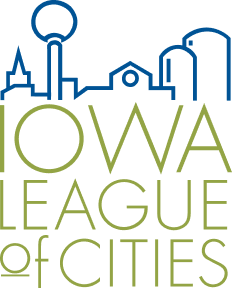Public hearings are intended to provide the public in general and those particularly affected by a proposed municipal action the opportunity to provide input regarding the policy options available to the city council. Cities are required to hold public hearings before taking action on certain items and it is important for the city council to know when a hearing must be held.
Public Hearings Prior to Approval of Ordinance
The Code of Iowa requires that a public hearing be held before the following ordinances are enacted:
- Authorizing condemnation of agricultural property (Section 6B.2A)
- Establishing precinct boundaries (Section 49.5)
- Withdrawing from application of the state building code (Section 103A.12)
- Vacating streets or public lands (Section 354.23)
- Granting a franchise (Section 364.2)
- Adopting or increasing a franchise fee (Section 364.2)
- Adopting a code of ordinances if it contains a new or amended ordinance (Section 380.8)
- Adopting a standard code or portions of the Code of Iowa (Section 380.10)
- Establishing a sewer or water assessment district (Section 384.38)
- Establishing a sewer or water connection fee district (Section 384.38)
- Establishing a self-supported municipal improvement district (Section 386.3)
- Discontinuing an administrative agency (Section 392.7)
- Establishing zoning regulations or changing the zoning property or approving a site development plan (Section 414.4)
- Making appropriations by a special charter city for necessary expenditures for the next ensuing fiscal year (Section 420.41)
- Partially exempting from property taxation of the actual value added to industrial real estate by the new construction of industrial real estate research-service facilities, warehouses, distribution centers and the acquisition of or improvement to machinery and equipment assessed as real estate (Section 427B.1)
- Making special valuation of wind energy conversion property (Section 427B.26)
Public Hearings Prior to Approval of Resolution
The Code of Iowa requires that a public hearing be held before the following resolutions are enacted:
- Approving plans, specifications, forming of contracts and cost estimates for public improvement project (Section 26.12)
- Approving the issuance of bonds for a joint transit authority (Section 28E.17)
- Vacating an official plat (Section 354.22)
- Entering into a lease-purchase agreement for equipment with payment from the debt service levy (Section 364.4)
- Approving a proposal to sell real property (Section 364.7)
- Approving of intent to dissolve city (Section 368.3)
- Entering into or extending annexation moratorium agreement (Section 368.4)
- Approving or denying an application for voluntary annexation to a city (Section 368.7)
- Approving resolution of intent to reduce number of council members from five to three (Section 372.4)
- Removing a council appointee by written order (Section 372.15)
- Approving city budget for the next fiscal year (Section 384.16)
- Amending city budget (Section 384.18)
- Instituting action for the issuance of general obligation bonds (Section 384.25)
- Approval of a capital improvement plan (Section 384.15)
- Approving resolution of necessity, estimate of cost, plat and schedule of assessments for a special assessment project (Section 384.49, 384.50 and 384.51)
- Approving the establishment of an urban revitalization area (Section 404.2)
- Approving the issuance of bonds under authority of Chapter 419 (Section 419.9)
While the Code does not specify if the action is to be done by resolution or ordinance, a public hearing is also required to remove a member of a metropolitan or regional planning commission by its governing body which is covered in Section 28I.2. Cities may also choose voluntarily to hold a public hearing as a way to bring added attention to an issue or where the governing body wants to solicit additional feedback from citizens before deciding on an issue.
Public Hearing Rules
Not unlike regular council meetings, cities should consider establishing rules of procedure for public hearings. If the proposed action is controversial or impacts a large number of people, it may be reasonable to limit the time of speakers in order for more people to be heard on the issue. It is also reasonable to expect speakers to remain respectful of those with opposing viewpoints and maintain proper decorum. The mayor or presiding officer is responsible for enforcing any rules, and great care should be taken to apply the rules equally to all speakers. The presiding officer should set the tone by reminding those in attendance at the start of any hearing that personal attacks and inappropriate language will not be tolerated.
Public Hearing Notification
This largely depends on the type of public hearing involved, so review the Code of Iowa section that addresses the specific policy area involved. The most common notification provision is found in Section 362.3, which provides that notice be made not less than four and not more than 20 days before the date of the hearing. Public hearings for budget approval or budget amendments require a notice to be published not less than 10 and not more than 20 days before the hearing.
Please visit our public notices page for additional information






